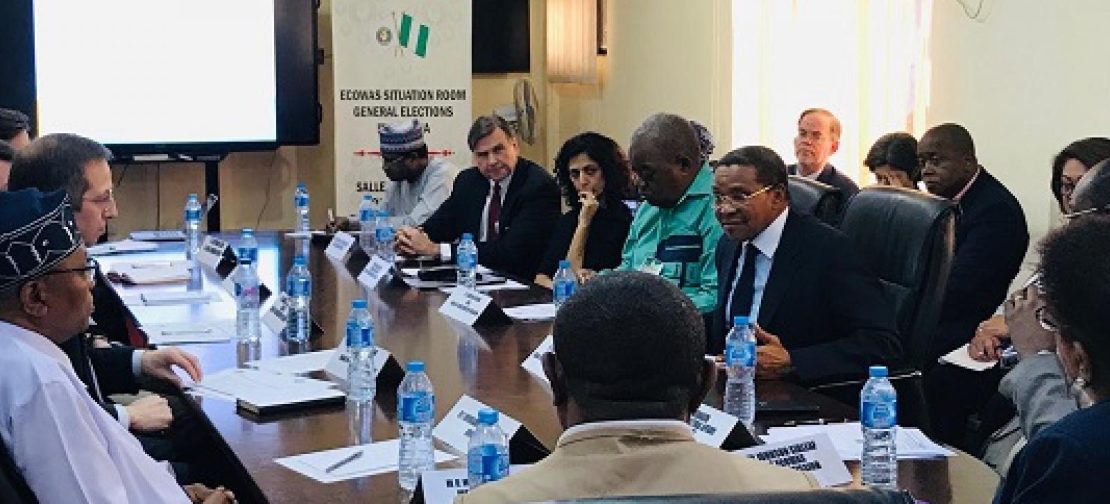
This post highlights the some of key importance of election monitoring in Nigeria politics such as promoting the integrity of the electoral process, preventing electoral fraud and violence; including promoting democracy and good governance. Election monitoring is the process of observing and assessing the conduct of elections, with the aim of promoting free and fair elections. The monitoring can be conducted by various organizations, including civil society groups, international organizations, and government bodies.
Election monitoring typically involves a range of activities, including:
The objectives of election monitoring include promoting transparency, accountability, and integrity in the electoral process. Election monitoring can also help to identify and address any irregularities or violations of election laws, as well as promote public confidence in the electoral process.
International organizations such as the United Nations and the European Union often send election observers to countries where there are concerns about the fairness and transparency of the electoral process. These observers typically issue reports outlining their findings and making recommendations for improvement.
In addition to international organizations, there are many local and national organizations that monitor elections. These organizations often work to educate voters about their rights, observe the voting process, and report any irregularities or violations to the relevant authorities.
Election monitoring is a crucial aspect of the democratic process in Nigeria. It is a process that involves the observation and evaluation of elections to ensure that they are free, fair, and transparent. The purpose of election monitoring is to promote democratic values, enhance the legitimacy of the electoral process, and prevent fraud and irregularities. The importance of election monitoring in Nigeria cannot be overemphasized, as it plays a critical role in ensuring the integrity of the electoral process and the stability of the country.
Nigeria has a history of electoral fraud and irregularities, which have undermined the credibility of elections in the country. Election monitoring is therefore essential in Nigeria to prevent electoral fraud and irregularities and to ensure that the will of the people is reflected in the election results. Election monitoring is necessary to ensure that the electoral process is fair and transparent, and that the outcome of the election is accepted by all stakeholders. Without election monitoring, the legitimacy of the electoral process can be questioned, and this can lead to political instability, violence, and even civil unrest.
Election monitoring can be carried out by various organizations, including international organizations, civil society groups, and local organizations. These organizations play a critical role in ensuring the integrity of the electoral process in Nigeria. They observe the electoral process from the beginning to the end, including the pre-election period, the election day, and the post-election period. They monitor the conduct of political parties, candidates, electoral officials, and security personnel to ensure that they adhere to the rules and regulations governing the electoral process.
One of the primary benefits of election monitoring in Nigeria is that it promotes transparency in the electoral process. Election monitoring ensures that the electoral process is transparent, and that the results of the election are verifiable. This promotes trust in the electoral process and encourages participation in future elections. When the electoral process is transparent, citizens are more likely to accept the outcome of the election, even if their preferred candidate did not win.
Election monitoring is also essential in Nigeria because it helps to prevent electoral violence. Electoral violence is a significant challenge in Nigeria, and it has been responsible for the loss of many lives and property. Election monitoring helps to prevent electoral violence by providing an early warning system for potential violence, identifying areas of concern, and ensuring that security personnel are deployed to these areas. Election monitoring also provides a platform for citizens to report incidents of violence and irregularities, which can help to prevent further violence.
Another benefit of election monitoring in Nigeria is that it promotes accountability and the rule of law. Election monitoring helps to ensure that the electoral process is conducted in accordance with the law, and that all parties involved in the process are held accountable for their actions. This promotes the rule of law and encourages respect for the law among citizens. Election monitoring also helps to promote transparency and accountability in the use of public resources during the electoral process.
Election monitoring is also crucial in Nigeria because it helps to promote democracy and good governance. Free and fair elections are an essential component of democracy, and election monitoring plays a critical role in ensuring that elections are free and fair. When elections are free and fair, citizens have a voice in the governance of their country, and they can hold their leaders accountable. This promotes good governance and ensures that the interests of citizens are represented in government.
Election monitoring is a critical tool in promoting participation in Nigeria’s politics. When citizens have confidence in the electoral process, they are more likely to participate in elections and engage with the political system. Election monitoring also helps to identify and prevent electoral malpractice, such as vote rigging, voter intimidation and bribery. This creates a level playing field for all candidates and encourages fair competition. Monitoring can also identify areas where there are low voter turnouts, which can then be targeted with voter education and mobilisation campaigns to encourage greater participation.
The importance of election monitoring in Nigeria cannot be overemphasized. Election monitoring plays a crucial role in ensuring the integrity of the electoral process, preventing electoral fraud and irregularities, promoting transparency, preventing electoral violence, promoting accountability and the rule of law; including promoting democracy and good governance.
It is therefore essential that election monitoring is carried out effectively in Nigeria to promote a peaceful, stable, and democratic society. All stakeholders, including political parties, candidates, electoral officials, security personnel, government and citizens, should work together to promote election observation and monitoring activities.